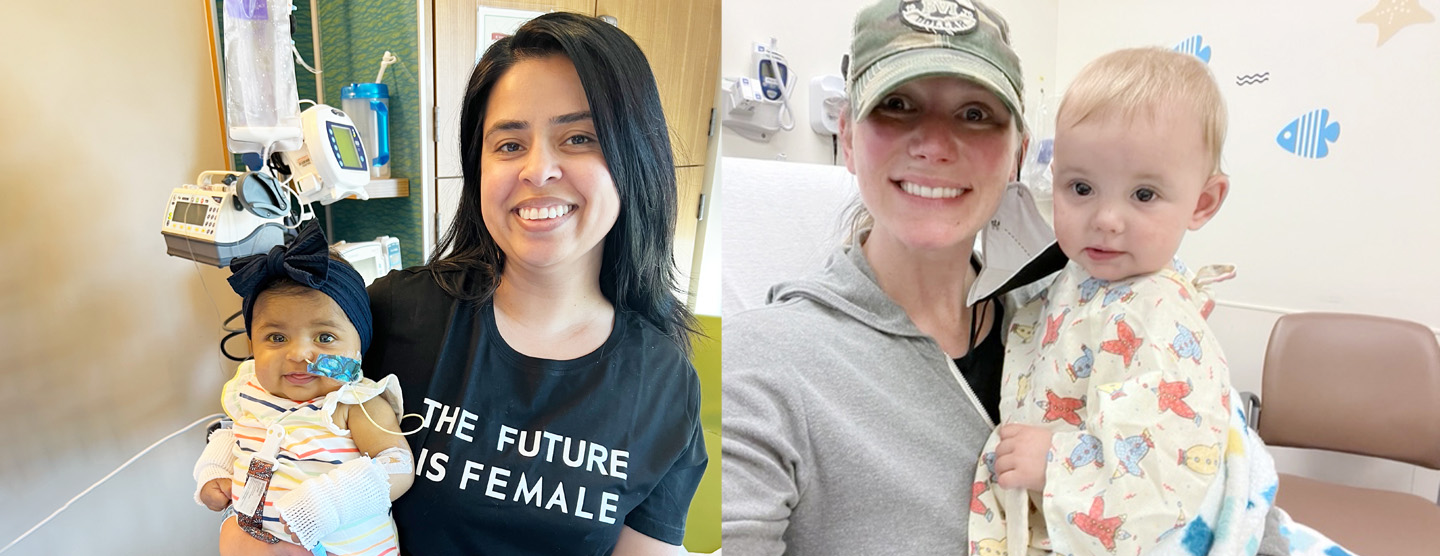
Pediatric Liver Center
At the Pediatric Liver Center, we provide compassionate, comprehensive care to children of all ages – from newborns to teenagers – with liver and bile duct disorders. Our goal is to help every child with liver problems live as happy and healthy a life as possible.
We employ both surgical and nonsurgical interventions, using minimally invasive techniques whenever possible to reduce the risk of complications and allow for faster recovery. The Center also has specialized programs, such as our Liver Tumor and Hepatoblastoma Clinic and Pediatric Liver Transplant Program, which are nationally known for their excellent outcomes.
Our team of renowned specialists includes pediatric hepatologists (liver disease specialists) and surgeons, as well as diagnostic specialists who focus on liver disorders. Our combined expertise and leadership in cutting-edge research allow us to offer the most advanced and effective treatments for all types of liver disease.
We have multidisciplinary clinics, where we're able to focus on care for specific conditions, including:
- Autoimmune liver disease
- Choledochal cysts
- Cholestatic diseases (biliary atresia, Alagille syndrome)
- Fatty liver disease and obesity
- Fontan-associated liver disease
- Liver disease in inflammatory bowel disease (IBD) and immunodeficiency
- Portal vein thrombosis (PVT) and portal hypertension
The continuum of care provided at our center can span a patient's entire youth, from infancy through adolescence. We also help prepare young people and parents for the transition to adult care and, once they're ready, facilitate their move to the UCSF Liver Disease and Transplant Clinic or other specialists for adults.
Our locations (6)
Our team
-

Kate Cheng
MD
Gastroenterologist and liver specialist -

Soo-Jin Cho
MD
Pediatric surgical pathologist -

Jesse Courtier
MD
Pediatric radiologist -

Rachelle Durand
DO
Pediatric interventional radiologist -

Christopher E. Freise
MD, FACS
Organ transplant surgeon -

Sang-Mo Kang
MD
Organ transplant surgeon -

K. Pallav Kolli
MD
Interventional radiologist -

Hanmin Lee
MD
Fetal and pediatric surgeon -

Anne Lyon
MD
Hepatologist and gastroenterologist -

Sarah L. Maxwell
MD
Pediatric gastroenterologist and hepatologist -

Prita Mohanty
MD
Pediatic gastroenterologist and hepatologist -

Willieford Moses
MD
Pediatric and trauma surgeon -

Amar Nijagal
MD
Pediatric surgeon -

Emily R. Perito
MD, MAS
Gastroenterologist and liver and pancreas specialist -

Arun Rangaswami
MD
Pediatric hematologist-oncologist -

Sue Rhee
MD
Gastroenterologist and liver specialist -

Philip Rosenthal
MD
Pediatric hepatologist -

Alejandro Sweet-Cordero
MD
Pediatric hematologist-oncologist -

Sharad I. Wadhwani
MD, MPH
Pediatric gastroenterologist and hepatologist -

Lisa Gallagher
NP, MSN
Pediatric nurse practitioner -

Susan Hilk
PNP, MSN
Pediatric nurse practitioner -

Maura E. O'Day
PNP, MSN
Pediatric nurse practitioner -

Tracy Sirota
PNP, MSN
Pediatric nurse practitioner
Awards & recognition
-

Ranked among the nation's best in 11 specialties
-

One of the nation's best for gastroenterology & GI surgery
Patient stories
Children with biliary atresia thrive after transplants
Two mothers became living donors for their babies, Sahej and Frankie, who were diagnosed with a life-threatening liver condition shortly after birth. Both are now thriving.
Clinical trials
Thoracotomy Versus Thoracoscopic Management of Pulmonary Metastases in Patients With Osteosarco...
Estimated four year thoracic event free survival (tEFS) where tEFS is calculated as the time from study enrollment. Any recurrence within the pulmonary parenchyma, involving the pleural surface or the drain/surgical site wound wil...
Recruiting
More about this studyProject: Every Child for Younger Patients With Cancer
The number of patients who agree to be in the Biobanking part of the study and have leftover tumor tissue and some normal blood, bone marrow, or other tissue saved for future research.
Recruiting
More about this studyChemotherapy for the Treatment of Patients With Newly Diagnosed Very Low-Risk and Low Risk Fusi...
The Kaplan-Meier method will be used to estimate 3-year FFS along with 80% log-minus-log transformed confidence limits for very low risk (VLR) patients.
Recruiting
More about this studyDinutuximab With Chemotherapy, Surgery and Stem Cell Transplantation for the Treatment of Child...
EFS time is calculated from time of randomization to Arms A or B to first episode of disease relapse or progression, second malignancy, or death, or until last contact if no event has occurred.
Recruiting
More about this studyA Study to Learn More About the Health of Persons With Down Syndrome After Treatment for Acute ...
Summary statistics will be used to characterize the study populations on CHC outcomes. Quantitative data (number of comorbidities) will be summarized using descriptive statistics and correlational techniques. Will use pooled logis...
Recruiting
More about this studyET140203 T Cells in Pediatric Subjects With Hepatoblastoma, HCN-NOS, or Hepatocellular Carcinom...
Safety of ET140203 T cells as assessed by the number of adverse events (AEs) after infusion
Recruiting
More about this studyCheckpoint Inhibition In Pediatric Hepatocellular Carcinoma
irRECIST criteria
Recruiting
More about this studyA Study of Combination Chemotherapy for Patients With Newly Diagnosed DAWT and Relapsed FHWT
For Strata 1-3, the primary analysis of EFS will consist of a one-sample, one-sided log rank test versus a historical control cohort (or representative distribution) with stratum-specific type I error levels. For Stratum 4, the pr...
Recruiting
More about this studyActive Surveillance, Bleomycin, Etoposide, Carboplatin or Cisplatin in Treating Pediatric and A...
The time from study entry to the date of death, or date of last contact and ascertained as alive, whichever comes first.
Recruiting
More about this studyPlan your visit
What to Bring
- Photo I.D.
- Health insurance card
- Insurance authorization, if required
- Doctor's referral, if required
- Recent test results related to your child's condition
- List of medications, including dosages, plus any your child is allergic to
- List of questions you may have
- Device or paper for taking notes
Support services
Our research initiatives
Staff superheroes
It’s a bird. It’s a plane. It’s a window washer! Dressed as a superhero to clean and brighten your day.


















































